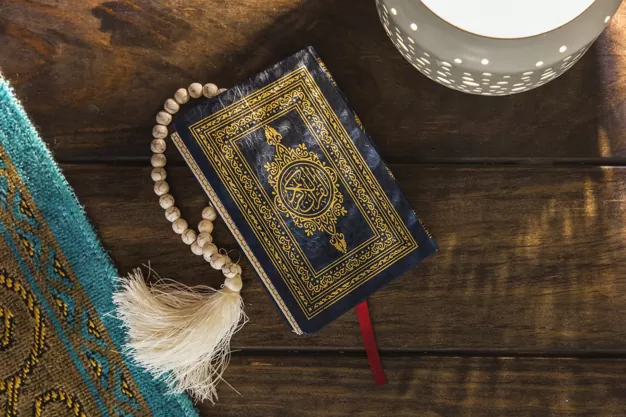3 Essential Rules in Islam for Woman, What Every Muslim Woman Should Know
Islam has been concerned with women since the beginning, as women in the Islamic religion are a fundamental pillar of society. Islamic law has established legislation and rulings that preserve women’s rights and dignity, define their duties, and organize their lives. These rulings aim to maintain the dignity and chastity of women. In this article, we will explain rules in Islam for woman and how Islam considered the innate nature of women and how it balanced between their rights and duties.
- Acts of worship: Rulings on purity, prayer, and fasting specific to women.
- Adornment and Islamic dress: Hijab, beautification, and Islamic clothing.
- Personal status: Women’s rights in marriage, divorce, and inheritance.

Essential Rules in Islam for Woman: Guidance on Acts of Worship:
Purification: One of the fundamental rules in Islam for woman pertains to purification
- When a woman is menstruating or in postpartum bleeding, she is exempted from prayer and fasting until the period of menstruation or postpartum bleeding ends. However, she must make up for the missed fasting days when it’s over, but not the prayers.
- She must perform a ritual bath (ghusl) and purify herself after the period of menstruation, postpartum bleeding, or sexual intercourse.
Prayer rules in Islam for woman include:
- Friday prayer is not obligatory for women, but they can attend it.
- In congregational prayer, women line up behind men.
- It’s preferable for a woman to pray in her home, but she’s not forbidden from praying in the mosque.
Fasting rules in Islam for woman :
- Women fast during Ramadan, but they break their fast during menstruation and postpartum bleeding days and make up for these days later.
- Pregnant and breastfeeding women are allowed to break their fast in Ramadan if they are unable to fast, but they must make up for these days when they can.
Hajj and Umrah rules in Islam for woman state:
- – A woman must be accompanied by a mahram (a close male relative like her husband or brother) during the Hajj journey.
- – If a woman menstruates during Hajj, she performs all rituals except for circumambulating the Kaaba (tawaf) until she becomes pure.
Dress Code and Adornment Rules in islam for Woman :
Hijab :
One of the fundamental rules in Islam for woman concerns the hijab.
- Every woman must cover her body and hair, except for the face and hands.
- The clothing must not be transparent, must not describe the shape of her body, should be loose-fitting, and cover the body and hair.
Adornment rules in Islam for woman are based on Quranic guidance:
- Women are allowed to show their natural beauty, such as the face and hands, in front of non-mahram men (those they can potentially marry).
- Allah says: “And not to display their adornment except to their husbands, or their fathers…” [An-Nur: 31]
- The Prophet (peace be upon him) said: “Allah is beautiful and loves beauty” [Sahih Muslim]
Types of Adornment:
Apparent Adornment:
* Can be shown in front of non-mahram men, including the face and hands according to the majority of scholars.
Allah says: “And not to display their adornment except what appears thereof” [An-Nur: 31]
Hidden Adornment:
* Should only be shown to the husband and mahrams (close male relatives). *Adornment is recommended and religiously encouraged for the husband.
Kohl and Makeup:
- Women are allowed to use makeup, but should avoid exaggeration. However, it is disliked to go out wearing noticeable makeup in front of non-mahram men.
- Must be removed before performing ablution (wudu).
Jewelry:
- Women are allowed to wear gold, silver, and precious stones.
Perfumes:
- Permitted at home and with women and mahrams.
- Forbidden in public places.
- The Prophet (peace be upon him) said: “Any woman who puts on perfume and passes by people so they can smell her fragrance is an adulteress” [Sunan an-Nasa’i]
Hair Dyeing: Allowed, but avoid bright colors and imitating non-believers.
- It is forbidden to use wigs or to connect hair with other real hair.
- It is not permissible to imitate men by cutting hair like men.
Cosmetic Surgeries and Changing Allah’s Creation:
- It is forbidden to change Allah’s creation without medical necessity, such as tattooing, plucking eyebrows, and filing teeth for beauty.
- The Prophet (peace be upon him) said: “Allah has cursed the women who do tattoos and those who have them done, and those who pluck their eyebrows, and those who file their teeth for beauty, changing Allah’s creation” [Sahih al-Bukhari]
Artificial Nails and Eyelashes:
- Disliked because they prevent water from reaching the skin during ablution and bathing.
- Some scholars consider them forbidden as they are a form of changing Allah’s creation.
These rules in Islam for woman aim to maintain modesty while allowing for personal expression within Islamic guidelines.
Essential Rules in Islam for Woman: Personal Status Laws
Marriage Rules in Islam for Woman :
- In Islam, a woman has the right to choose her husband and cannot be forced into marriage.
- The Prophet (peace be upon him) said: “A previously married woman should not be married until she is consulted, and a virgin should not be married until her permission is sought.” [Sahih al-Bukhari]
However, the majority of scholars stipulate the guardian’s approval is required.
- The Prophet (peace be upon him) said: “There is no marriage without a guardian.” [Sunan Abu Dawud]
- Mahr (Dowry): The man must give the woman a dowry that is mutually agreed
Allah says: “And give the women their dowries graciously.
” [An-Nisa: 4]
Marital Rights:
- Financial Support: The husband must provide for his wife and children.
Allah says: “Upon the father is the mothers’ provision and their clothing according to what is acceptable.” [Al-Baqarah: 233]
- Good Treatment: The husband must treat his wife well and not insult or abuse her.
Allah says: “And live with them in kindness.” [An-Nisa: 19]
Divorce Rules in Islam for Woman:
- If divorce occurs, the husband must give his wife all her rights by mutual consent.
- Waiting Period (‘Iddah): A woman must wait three months before remarrying after divorce or the death of her husband.
Allah says: “Divorced women remain in waiting for three periods.
” [Al-Baqarah: 228]
Inheritance
- Women have a fixed right to inheritance, with their share varying according to the degree of kinship.
Financial Guardianship Rules in Islam for Woman
- Women have the right to manage their own money after reaching maturity and sound judgment.
Allah says: “And do not give the weak-minded your property.”
[An-Nisa: 5] – This includes both men and women if they are of sound mind.
Education and Work Rules in Islam for Woman
- Women have the right to seek knowledge and specialize in various fields.
The Prophet (peace be upon him) said: “Seeking knowledge is an obligation upon every Muslim.” [Sunan Ibn Majah] – This includes both men and women.
- Women are allowed to work outside the home while observing Islamic guidelines.
Evidence: The story of Khadijah (may Allah be pleased with her) as a businesswoman, and the story of the shepherdesses in Surah Al-Qasas.
Understanding the rules in Islam for women is essential for every Muslim seeking to live a life in accordance with their faith. At TellawahOnline , we not only provide insightful articles like this, but also offer comprehensive courses on the Islamic religion, the Quran, and Tajweed. Our expert instructors guide you through the teachings of Islam, ensuring you gain a deep understanding of key principles, including the specific roles and responsibilities for women. Join our courses today and strengthen your knowledge of the Islamic way of life.
